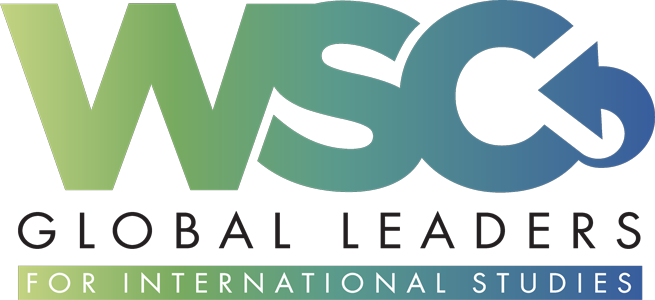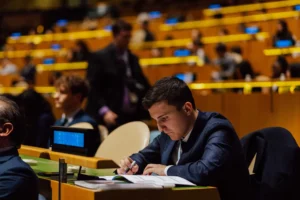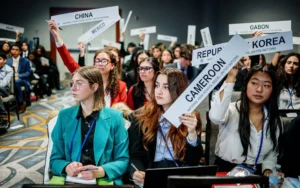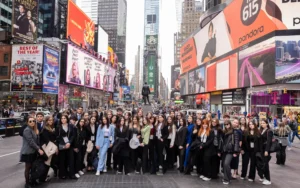Table of Contents
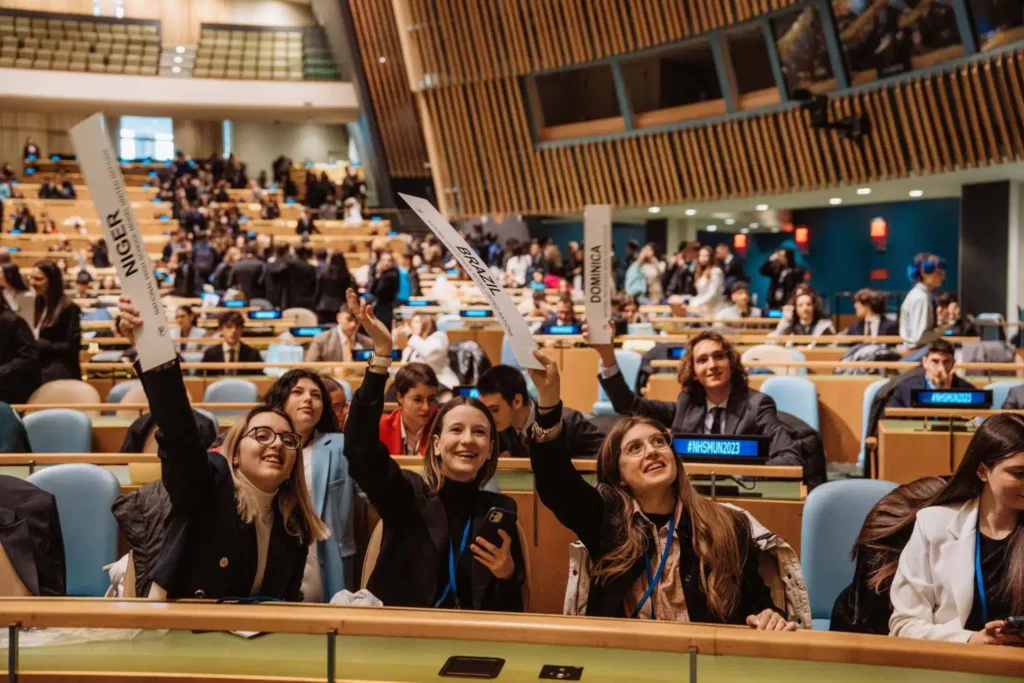
Interest in international relations and diplomacy has always been a fascination for many young people. But how can we really understand the functioning of a complex entity like the United Nations?The answer lies in the Model United Nations (MUN or Model UN). These United Nations General Assembly simulations offer students an unparalleled opportunity to experience the dynamics of international conferences first-hand, representing countries and advocating for relevant global issues.If you are a student or parent curious why your child has expressed a desire to attend one of these conferences, this article is for you. We will guide you through the history, structure, importance and benefits of this experience, illuminating the path for those who wish to immerse themselves in the world of youth diplomacy. Furthermore, with a particular focus on the prestigious “The Ambassador of the Future” conference organized by WSC Global Leaders Fzco, you will have a complete picture of what it really means to participate in a Model UN.
Brief History of MUN
Model United Nations did not emerge suddenly, but are the result of a long historical process of awareness and interest in international issues. Their history has its roots in the period following the First World War. In fact, the first international simulations date back to the 1920s, shortly after the foundation of the League of Nations, the precursor body of the United Nations. The students of the time, animated by a fervent desire to understand and prevent the causes of global conflicts, began to simulate the sessions of the League, trying to find peaceful solutions to international disputes. With the birth of the United Nations in 1945, the nature of the simulations changed, reflecting the structure and principles of the new international body. Thus, the Model United Nations as we know it today was born. Their primary objective was (and is) to educate students in the principles of peace, cooperation and diplomacy that underpin the United Nations system. Over the years, these conferences have gained more and more popularity, evolving from simple educational exercises to truly international events. Schools, universities and associations and agencies all over the world have begun to organize MUN conferences, attracted by the educational and training power of such events. Today, they represent not just a simulation of the United Nations, but a global movement that engages hundreds of thousands of students every year, providing them with a platform to discuss, negotiate and seek solutions to the most pressing problems of our time.
Structure and Operation of Model United Nations
Model United Nations are structured to reflect the actual functioning of the United Nations and its various commissions, bodies and rules of procedure. This large simulation offers students a unique opportunity to understand the dynamics of international relations and global decision-making.
- Role of Participants: Students participating in this experience take on the role of delegates representing specific countries or, in some cases, non-governmental organizations. Each delegate has the task of representing and defending the positions and interests of the country or organization he represents.
- Preparation: Before the conference, future delegates undergo a training course and receive a list of topics or issues to discuss. They will then prepare by conducting in-depth research, understanding their country’s position on these issues, and formulating negotiation strategies.
- Debate and Negotiation: During the conference, delegates present their countries’ positions, participate in debates and negotiations, and seek to build alliances with other countries to advance their agendas.
- Drafting Resolutions: A fundamental part of the activity consists in drafting resolutions. These documents represent formal proposals to address specific problems or issues. Once drafted, the resolutions are discussed and, if approved, voted on by the assembly.
- Voting Process: After intense debates and negotiations, the resolutions are presented to the entire assembly for voting. This process reflects the United Nations method of decision-making, where each country has one vote and decisions are made through consensus or a majority.
- Feedback and Awards: At the end of the conference, delegates receive feedback on their performance. At many conferences, awards are also given to delegates or delegations who have distinguished themselves through their negotiation, research and oratory skills.
In summary, Model UN offers students hands-on experience of the complex world of diplomacy and international relations, allowing them to develop essential skills in a challenging and collaborative environment.
Popularity and Impact of Diplomatic Simulations
Diplomatic simulations have gained considerable resonance in the international educational landscape, becoming one of the most prestigious and recognized student events globally. Their popularity has grown exponentially, with conferences taking place in almost every corner of the world.
One of the most significant aspects of MUNs is their lasting impact on participants. Many students who took part went on to pursue successful careers in various sectors, from diplomacy to business, during their academic years. It is not uncommon to hear influential leaders, heads of state, multinational CEOs and other prominent professionals cite their participation in one of these experiences as a pivotal moment in their personal and professional growth.
Attending one of these conferences not only provides students with a deep understanding of international relations and global challenges, but also helps develop a set of interpersonal skills that prepare students to become effective, knowledgeable leaders in the real world.
Furthermore, the network of contacts that students can build by attending international conferences is invaluable. Interacting with peers from around the world offers a unique perspective and broadens students’ worldview.
In conclusion, the growing popularity of MUNs is not only a reflection of their educational value, but also of their ability to shape the next generation of global leaders, providing young people with the tools and skills necessary to meet the challenges of an increasingly global and interconnected.
The role of the delegate
In the context of the Model United Nations, the role of the delegate is crucial and represents the very heart of this event. A delegate is not simply a participant, but represents a UN member country and is required to faithfully respect its values and interests, carrying forward and defending the positions of the country represented.
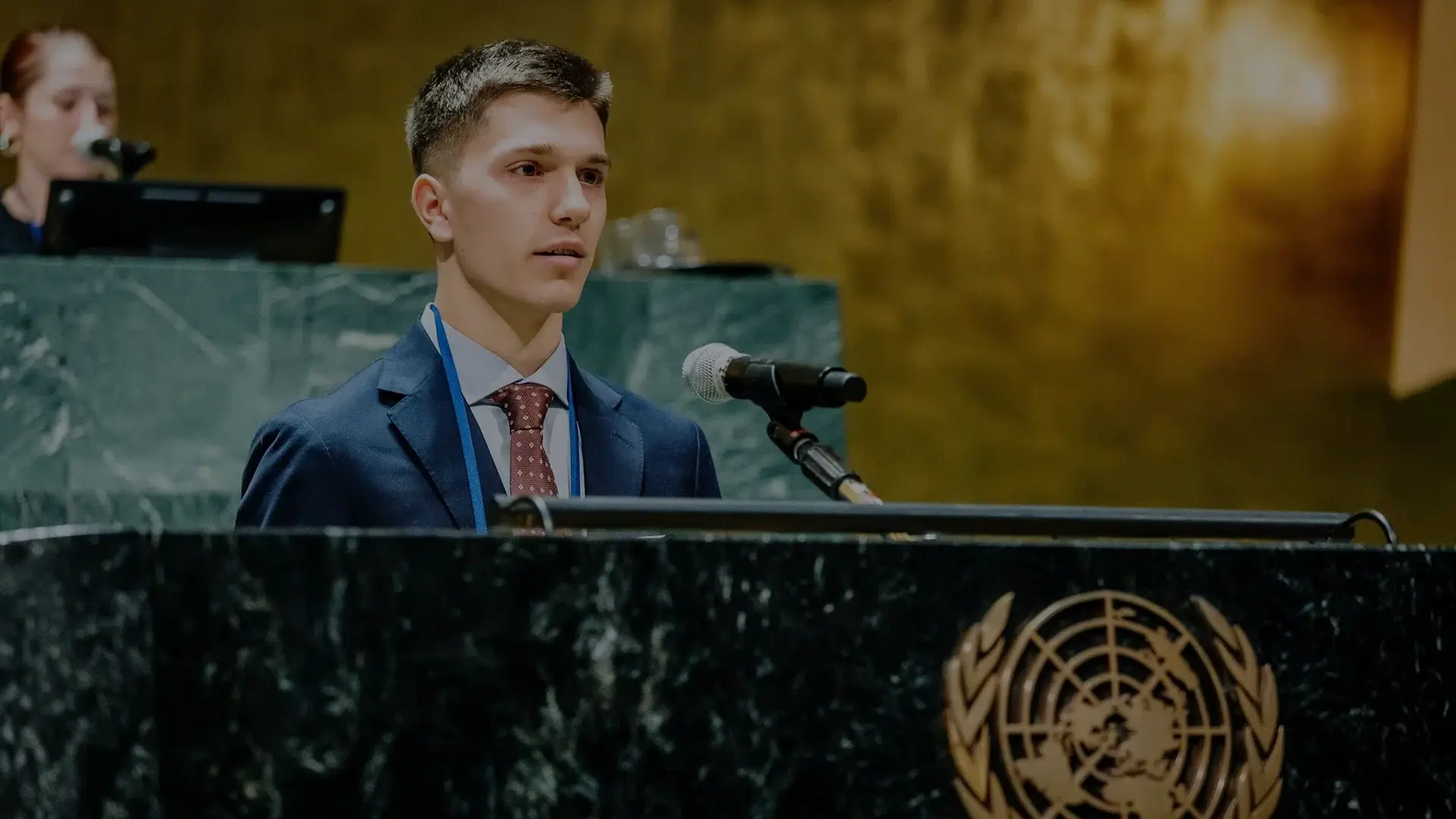
- Research and Preparation: Before the conference, the delegate should conduct extensive research on the country or organization he represents. This includes understanding history, culture, politics and, above all, positions on specific topics or issues under discussion.
- Debate and Negotiation: During the conference, the delegate actively participates in debates, presenting and defending his country’s positions, seeking alliances and collaborating with other delegates to find shared solutions to global problems.
- Drafting Resolutions: In addition to the debate, delegates collaborate in drafting resolutions, documents that propose solutions to the problems discussed. This process requires negotiation, collaboration, and writing skills.
- Ethics and Professionalism: A delegate must always act with integrity, respecting the rules and other participants. Even if it is a simulation, ethics and professionalism are essential to ensure a constructive and meaningful experience for everyone.
Benefits of participation
Participating in the simulation offers a number of tangible and intangible benefits that go far beyond the simple academic experience.
- Soft skills development: The experience refines a number of essential skills, including research, writing, public speaking, negotiation, public speaking and listening skills. These skills are transferable and valuable in any future career or context.
- Understanding Diplomacy: By simulating United Nations procedures, students gain a deep understanding of international relations, global problems and the challenges of international politics. This global perspective is crucial in an increasingly interconnected world.
- Networking: MUNs offer the opportunity to interact with students from different parts of the world, creating a network of contacts that can be invaluable in the future, both academically and professionally.
- Personal Growth: In addition to the tangible benefits, this experience promotes personal growth, helping students develop self-confidence, resilience, the ability to work in teams and face complex challenges.
- Preparing for the Future: Whether students decide to pursue a career in international relations, business, law, or any other field, the MUN experience prepares them to become knowledgeable, competent leaders, ready to overcome the challenges of the future .
In summary, it is not just an extracurricular activity, but a learning experience that prepares students to become informed global citizens and effective leaders in their field of choice.
How to participate
Participating in a Model United Nations is an exciting and enriching experience. In Italy, there are numerous opportunities for students interested in UN simulations. Among these, our initiative stands out, the Ambassador of the Future, one of the most prestigious conferences aimed at both high school and university students.
For over 10 years, The Ambassador of the Future has offered university and high school students a unique and unforgettable experience, allowing them to interact with peers of all nationalities at the United Nations headquarters in New York and the main diplomatic offices around the world .To take part in this adventure, it is essential to follow some fundamental steps:
- Choice of the ideal programme: choose from one of the scheduled conferences available in our dedicated section.
- Completing the registration request: by completing the application form. This is the first step to express your interest and undertake the selection process.
- Take the Selection Interview: After registration, you will be contacted for an interview, during which your skills will be assessed, in particular your command of English and your passion for international relations.
- Become a Member of WSC Global Leaders Fzco: Once you have taken the interview, your subscription will be evaluated and you will be able to become a member of the organization, thus starting the exciting journey that will lead you to live a unique and unforgettable experience.
Obviously this is just a brief overview of the steps necessary to take part in this initiative. For a detailed overview of the process you can consult the complete participation guide or contact us via the appropriate form on the contact us page.
Conclusion
Model United Nations are more than just simulations: they are an opportunity for young people around the world to learn, grow and shape the future of our planet. If you have a passion for international issues and a desire to make a difference, the MUNs, and in particular the WSC Global Leaders Fzco Ambassador of the Future, are the opportunity you have been looking for. Don’t miss the opportunity to be an active voice on the international scene: your journey as a delegate starts here.
